Disclaimer and Copyright Notice:
This project has been funded with support from the European Commission.
This publication reflects the views only of the authors, and the Commission
cannot be held responsible for any use which may be made of the information
contained therein.
No part of this work may be reproduced, stored in a retrieval system, or
transmitted in any form or by means, electronic, mechanical, photocopying,
microfilming, recording or otherwise, without written permission from the
authors. For educational purposes only (i.e. for use in schools, teaching,
teacher training etc.), you may use this work or parts of it under the
Attribution Non-Commercial Share Alike license according to Creative
Commons, as detailed in http://creativecommons.org/licenses/by-nc-sa/3.0/legalcode

- Dr. Karl Luegerring 1
- 1010 Wien
- Austria
Coordinator:
Andreas Ulovec, Faculty of Mathematics
Project team:
- Andreas Ulovec
- Franz Embacher
- Michael Le Gohebel
The University of Vienna is the largest mathematics and science teacher training institution in AT for lower and upper secondary schools, about 80 staff members annually training about 350 mathematics teachers and 100 physics, chemistry, and biology teachers. The institution participates in scientist and student exchange programmes with several European and non-European universities in all fields, and in a variety of co-operations within LLP, CEEPUS and other nationally and internationally funded programmes in the areas of mathematics and science education.
The organisation will be the co-ordinating institution and the beneficiary of the project, as well as the lead partner of work packages as stated below, carrying out the tasks described in the work packages. The project will operationally be managed by the co-ordinator (contact person), in close co-operation with the Faculty of Mathematics’ project support service. It will be – according to Austrian university law – financially managed by the co-ordinator (contact person), using the services of the universities’ financial department.

Contact Person:
Rob Hughes
Project team:
- Rob Hughes
- Nicholas Tuck
- Alex Dockerty
The University of Sunderland is an innovative, forward-thinking university with high standards of teaching and research. The University has been providing higher education in the city of Sunderland since 1901. The Faculty of Education and Society at Sunderland is a large and diverse grouping of three separate Departments whose programmes range from Teacher Training for schools and for Further Education, through Languages, Childhood Studies, History and English to the training of Social Workers and to Criminology. The Department of Education is concerned with teacher education in all sectors and has a wide portfolio of provision including undergraduate, postgraduate and Masters programmes. The Department of Education is concerned with teacher education in all sectors and has a wide portfolio of provision including undergraduate, postgraduate and Master's programmes. It has excellent quality ratings and very high quality partnerships with schools and colleges. The University is one of the top providers for secondary education in the country gaining the best possible rating from Ofsted. The project will operationally be managed by the contact person. It will financially be managed by the contact person, using the universities’ financial department.
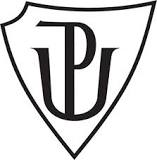
Contact person:
Josef Molnár, Department of Mathematics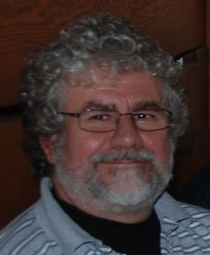
Project team:
- Josef Molnár
- Danuše Nezvalová
- Renata Holubová
- Vladimír Vaněk
Expertise: Palacky University is placed in the centre of Moravia in the city of Olomouc. The city has about 102 000 inhabitants and is the cultural and educational centre of this region. PU is the second oldest university in the country. Palacky University has about 20 000 of students. Faculty of Science is one of the 8 faculties of this University. The institution cooperates with the rural, urban, and sub-urban schools in the region of Moravia. The Faculty of Science Palacky University in Olomouc offers daily undergraduate programs of study on the full-time and part-time basis in the following areas:
- Science teachers and mathematics teachers for upper secondary schools
- Programs for specialists in Science, Mathematics, Computer Science, Optics, Nanotechnology, Biophysics, Biochemistry, Geography and Environmental Science
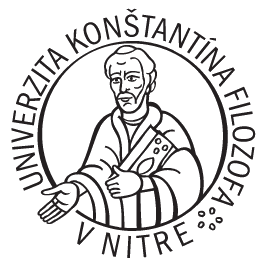
- Faculty of Natural Sciencies
- Tr. A. Hlinku 1
- 949 74 Nitra
- Slovakia
Contact person:
Soňa Čeretková, Department of Mathematics
Project team:
- Ján Beňačka
- Soňa Čeretková
- Janka Melušová
Constantine the Philosopher University (UKF) is a public university founded in 1992 as the University of Education in Nitra which became a successor of Pedagogic Institute established in 1959 and Faculty of Education (1964). University of Education in Nitra has been renamed to UKF in 1996.
Over the course of time, UKF has secured its position in the Slovak higher education system while transforming itself into a university, an advanced educational and research institution meeting the criteria imposed on European university institutions. The university has defined itself as a comprehensive university with faculties providing education not only in traditional teacher training programmes but also in many other scientific and professional study programmes at all levels of study. UKF has an outstanding position in the region providing study programmes in education, arts, social, human and natural sciences and health care. The university has almost a 50-year long tradition in teacher-training in the Hungarian language of instruction as well as a 13-year tradition of educating social workers and missionaries for the Roma ethnicity.
The ambition of UKF is to make the study courses more flexible and challenging for its students and to respond to the vital needs of the society, while providing the applicants with different ways and forms of undergraduate, postgraduate and life-long study. By student population – more than 14,000 full-time and part-time students, UKF belongs to the larger Slovak universities.
The main mission of the Faculty of Natural Sciences is the science and research activity in mathematics, biology, chemistry, physics, ecology, geography and informatics. Faculty runs study programmes for teachers of academic subjects at primary and secondary schools as well as for specialists with non-teaching specializations in sciences.
Due to the Faculty tradition the pedagogic research observes a significant prominence. This research focuses on the utilization of knowledge and experience of the creative personalities of the faculty in specific didactics of particular natural science subjects using new forms and methods of education (e-learning) and on the promotion of natural science education. The Faculty aims at further obtaining and participating on international educational projects.
Pedagogic and educational activities create another pillar of the Faculty. The Faculty provides university education in a wide range of one-major and pedagogic under-graduate (bachelor), graduate (master´s) and post-graduate (doctoral) study programmes – in a day or distant form of study. There is an opportunity to take doctoral exams and apply for professional development education programmes.
The organization is a partner of the project. Operational management of the project will be based on experienced university teachers from Department of Mathematics. Financial management of the project will be provided with close cooperation and assistance of the economy department of the faculty. Faculty has developed strong and precise internal control of financial project issues.
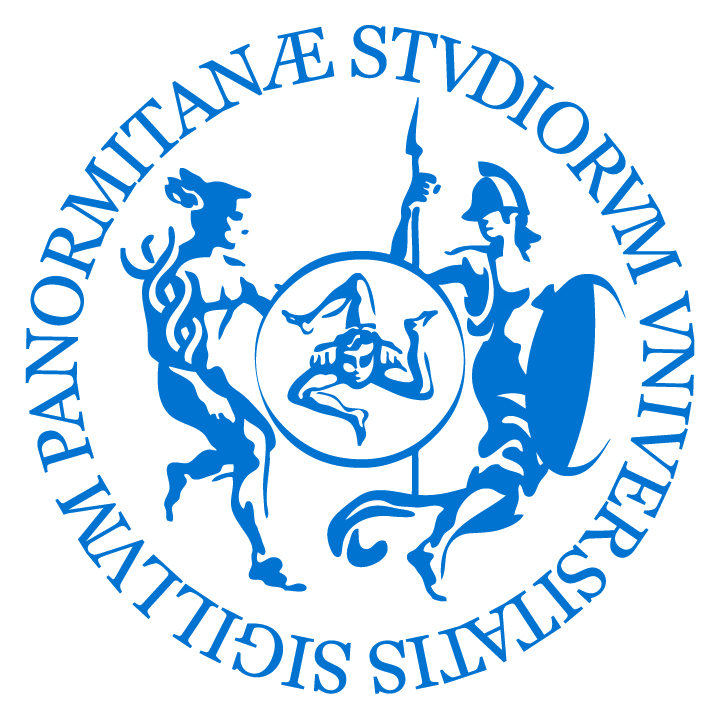
Contact person:
Benedetto di Paola, Department of Mathematics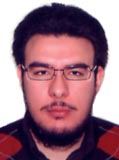
Project team:
- Benedetto Di Paola
- Aldo Brigaglia
- Maria Lucia Lo Cicero
- Mario Ferro
- Pietro Milici
- Manuela Di Natale
The University of Palermo was born in 1807 thanks to Ferdinando III of Borbone’s will, the “rex utriusque Siciliae”, who escaped from Naples in revolt to Palermo. The University today has twelve faculties with nearly 60.000 undergraduate students and 1.200 professors.
Palermo’s Mathematics School has a very ancient renowned history that started with the “Circolo Matematico di Palermo” in 1884.
As regards the teaching active courses, the department of Mathematics and Informatics has the following degree courses: Mathematics; Mathematics for Industry and Finance, Computer science, Mathematics for Computer Science and Scientific Communication.
The training of mathematics teachers takes place in cooperation with the Department of Mathematics, the Department of Physic and Science and the research group of G.R.I.M.
Since 1979, the G.R.I.M. (Gruppo di Ricerca sull’Insegnamento delle Matematiche) research group in Mathematics Education works in close collaboration with the Department of Mathematics.
The group is constituted of about 30 members, including both all school level teachers and University Scholars. The group promotes and achieves a thriving and strong relationship and collaboration between University and the world of the school, in Sicily and all over Italy.
The G.R.I.M. research group was/is member or coordinator in several international research projects and has organized several national and international meetings (e.g. CIEAEM, ASI, MEDCONF, YESS-CERME…). Most of all the member of G.R.I.M. are usually to participate to national and international education conferences (e.g. ICME, PME, CERME) presenting the research works published by the group.
The G.R.I.M. research group, in collaboration with the Mathematics and Physics Department coordinates also the PhD course in Physics and Mathematics History and Education. Prof. Aldo Brigaglia is the Coordinator of the PhD.
The main research areas of the G.R.I.M. are: multiculturalism, epistemological and didactical obstacles related to Algebra, Calculus, Geometry, Neurosciences etc. A detailed description of the research is documented on the web site: http://dipmat.math.unipa.it/~grim.
The responsible of the research activities of G.R.I.M. is Benedetto Di Paola, PhD.
Specific expertise for and role in the project:
Because of its historical, social and economic tradition, together with its geographical position, the Università di Palermo and G.R.I.M. research group have a long standing reputation in education and has established solid links with the territory and Society at large.
Several of G.R.I.M. staff members carry national and international responsibilities in the field of education, particularly in Mathematics and Science. Close and intense collaborations with school authorities and teachers are currently under way not only to provide high school students with information about enrollment, but also to spread a more positive attitude in the general population about mathematics, science and technology.
The specific expertise of the Italian team to organize national and international conferences and workshop could be significant presenting and informing teachers, teacher trainers, teacher training institutions, mathematics and science educators about the product of the project and their use in the didactical practices.
The webpage (http://dipmat.math.unipa.it/~grim) and specifically the international research review “Quaderni di Ricerca in Didattic, QRDM-QRDS” that G.R.I.M. coordinates, could be useful for the project giving the opportunity to all the partner to publish the materials and video clips, as products of the project, and also to publish, in the review “Quaderni di Ricerca in Didattic, QRDM - QRDS”, articles and/or papers written by all project’ partners and related to the area of mathematics and science education.
The responsible Editor of “Quaderni di Ricerca in Didattic, QRDM-QRDS” of G.R.I.M. is Benedetto Di Paola, PhD.